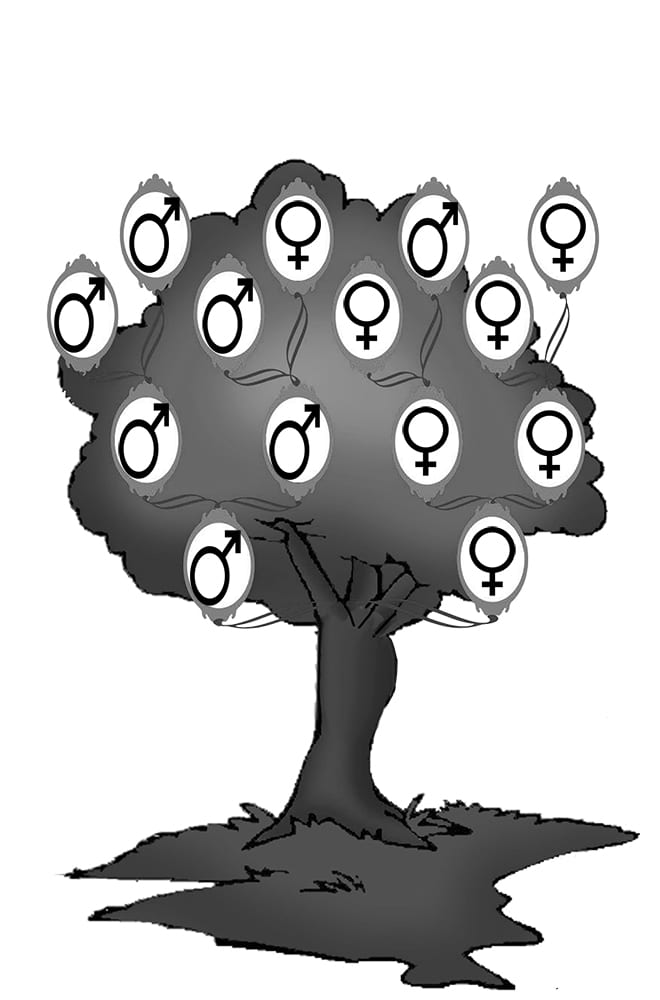by The Cowl Editor on January 18, 2019
Portfolio
by Julia Zygiel ’19
“Yeah,” aunt Amelia interjects, her folded arms bouncing to secure attention. “He used to go to the neighbor’s dressed up as Santa and get absolutely shitfaced. He’d come home singing and swearing,” she laughs, a hand emerges to cover the crinkle of her nose and eyes, as if joy at her father’s embarrassment is something to be coyly hidden from view. Overly impressed by her own story, she laughs to the point of tears. Her two nieces, one college-aged and one already married, both named Rachel out of respect for their great-grandmother, wear faces that are equal parts horror and humor, unsure if they should follow her lead or reassure each other that that’s not typical grandfather behavior.
As Amelia’s laughter dies down to a quiet smile, it occurs to the older Rachel that her aunt doesn’t care about how they see their grandfather. She tells the truth and lets them sift out their feelings for themselves, claiming no responsibility for his reputation or integrity in the eyes of his grandchildren. His own actions determined those things long ago.
The contrast between the maternal and paternal families of her older niece is striking. Rachel knows that there are stories like this on her father’s side, although she doubts she’ll ever hear of them.
The Flynn family is still painfully patriarchal. All but one of the oldest generation is a man, and they are all determined to maintain the image of their parents as an American Wet Dream, the father who was a factory man all his life, steady and noble, and the staunchly Catholic mother who darned all of the clothes and cooked all of the meals. Not a single flaw to be seen in their simple, yet noble existence. That part of the heritage has yet to be reclaimed by women, if it ever will be. Any dissent from the current line has only ever been voiced by Rachel’s mother, an outsider who knew what a dysfunctional family looked like, who told her quietly of Grandma Flynn’s mental illness, and alcoholism.
The Strickland’s are different. There, the women rule. The mothers of two Rachels and their sister: three women for whom the most impactful authority figure in their life has been their mother, for better or for worse. Women who have never been given a reason to trust men. One divorced, one abandoned with a child to care for, and the third stuck with an abusive husband. Despite all the trauma they are still some of the most delightful women ever encountered. Strickland family parties are full of song, laughter, and gossip.
Flynn family parties are colored by storming exits orchestrated by the youngest, the sister, and the tacit agreement between brothers that, despite their disappointment, they must support her. It is a family of ties strung from duty, colored by subtle resentment voiced during car trips to a cousin’s house. Silence prevails, inherited from grandfather and his father. Gripes and pain are pushed down in favor of passive aggression. The song of the Stricklands is lacking, and the laughter bites.
